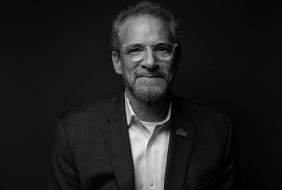2019 BROUGHT MORE SUCCESS FOR THE FAMILIES WE SERVE AND FOR BEYOND HOUSING AS AN ORGANIZATION.

The following is a listing of mission related accomplishments for us and those we so proudly support:
- 41 new single-family homes were built and rented to families in need of a place to call home. Our rental portfolio is now at 500 units! Our staff made over 5,000 one-on-one contacts with our families to help them move their lives forward.
- Grant funding and construction oversight was provided to rehab over 75 owner-occupied homes in the 24:1 footprint.
- Financial advisement services and down payment assistance was provided to over 150 families (17 in the 24:1 footprint), bringing over $800,000 to all the transactions.
- 72 children were enrolled in an after-school program with 46 attending daily, producing a combined 30,000-plus minutes of reading during the year.
- 131 students participated in our Youth Individual Development Account program to save for college. They saved over $31,000 and we matched with over $63,000. We will soon have over 75 college graduates with seven getting their masters.
- Held our 5th Annual Beyond the Backpack Event, giving out over 2,000 backpacks full of school supplies as well as many other resources for the families living in our community.
- Our 13 Family Engagement Liaisons embedded in all the Normandy Schools in the first semester of the 2019-20 school year held over 3,500 one-on-one engagements with families, and provided 1,800 families with food, over 1,100 students with uniforms and clean clothes, and referred another 800 families to other needed resources.
- We held 18 community events engaging almost 3,000 residents and just completed the next 10-year visioning process with the community.
- Launched our Community Health Worker Program with over 100 participants who all have reduced their utilization of the emergency room for either their asthma or diabetes. 67% indicated they are more confident in both understanding and managing their chronic disease.
- Our work with the 23 elected leaders of the 24:1 community continued, including working on the 2nd ever merger in St. Louis County between Normandy and Glen Echo Park, brokering health insurance for 8 communities, starting the Code Enforcement Initiative with 6 communities, and facilitating tree trim grants from the State of Missouri for 9 communities.
- 200 families and over 500 children participated in our Holiday Friends Program where our great donors made the holiday season so bright for these families.

This list, not meant to be exhaustive, is a great indicator of the scope and scale of our mission and how we deliver it day in and day out. When we say our mission is to help entire communities become a better place to live, we mean it.
It is, however, abundantly clear that so much needs to be done to truly give all the residents of the 24:1 footprint a realistic opportunity to live the lives they dream of. I can look out the window of my office and see a burned-out shell of a home screaming at me every day to knock it down. (We will but, like so much of our efforts, it just takes some time.) The Normandy Schools saw their progress level off in the last grading cycle with the state. Violence still plagues part of our community. There is a lot that needs to be done to provide an equity of opportunity for everyone, which is at the heart of who we are and what we believe in.
The fact is that after ten years of work, we still have so much more to do. As we enter our second decade of this mission, we have not become just a little bit impatient. Truth be told, we are a lot impatient.
I will not recite the litany of statistics that clearly show the vast inequities that exist in our region by race. In the event that you are in need of data please feel free to use these two as a primer:
- Purnell JQ, Camberos G, Fields R., For the Sake of All: A Report on the Health and Well-being of African Americans in St. Louis and Why it Matters for Everyone. St. Louis, MO: Washington University in St. Louis. 2014.
- Cambria N, Fehler P, Purnell JQ, Schmidt B., Segregation in St. Louis: Dismantling the Divide. St Louis, MO: Washington University in St. Louis. 2018.
The impatience referred to above reminded me of Dr. King’s 1963 book entitled Why We Can’t Wait. In the book, which includes the entirety of the Letter from the Birmingham Jail, Dr. King passionately and clearly articulates why patience is no longer an option. Near the beginning of his famous letter he states, “I am in Birmingham because injustice is here.” You can replace Birmingham with 24:1. Dr. King goes on to write, “I am cognizant of the interrelatedness of all communities and states. I cannot sit by in Atlanta and not be concerned with what happens in Birmingham. Injustice anywhere is a threat to justice everywhere. We are caught in an inescapable network of mutuality, tied in a single garment of destiny.” Here you can replace Atlanta with Clayton, Ladue, St. Charles, or the many other places you know that fit here. Birmingham can be replaced with 24:1, East St. Louis, the North Side, or any other place that fits.
In today’s context we know the condition of so many communities in our region. And while no one is saying to “wait” or be “patient,” neither is the leadership of the region saying the problems of our neighborhoods long strangled by poverty need to be addressed today.
I know there are many people of good will in this region who do care but they have not been galvanized together to bolster each other and press others to join them in making the changes needed to provide real equity of opportunity. Good will without action leaves all of us wanting and impatience grows. As King said, “Shallow understanding from people of good will is more frustrating than absolute misunderstanding from people of ill will. Lukewarm acceptance is more bewildering than outright rejection.”
We know where the problems exist. We understand what outcomes will occur if we fail to act or do next to nothing. The real question is—do we have the courage as a region to say once and for all we are going to commit ourselves and the necessary resources to improve the lives of those that struggle for whatever reason? For when we do, we all will prosper. What if St. Louis became the shining light on the hill that shows the nation what can happen if we come together and allocate the resources needed to educate every child in the highest caliber possible, to ensure everyone has a decent, safe, and affordable place to live, and to create an economy where all can thrive and aspire to achieve their dreams. What if. Is that too extreme?
Back in 1963, the white clergy wrote an editorial asking Dr. King to slow down, stop pushing so hard, and acting in extreme measures. Dr. King took great umbrage to this notion and pushed back by saying,
But though I was initially disappointed at being categorized as an extremist, as I continued to think about the matter I gradually gained a measure of satisfaction from the label. Was not Jesus an extremist for love; ‘Love your enemies, bless them that curse you, do good to them that hate you’. . . Was not Amos extremist for justice: ‘Let justice roll down like waters, and righteousness like an ever-flowing stream’. . . Abraham Lincoln: ‘This nation cannot survive half slave, half free’. . . So the question is not whether we will be extremists, but what kind of extremists will we be? Will we be extremists for hate or for love? Will we be extremists for preservation of injustice or for the extension of justice?
I submit that we know how to address the problems of poverty, and the problems of place. And while they are not easy fixes by any means, we can indeed change the trajectory of our region and the families that struggle today. We need to be collectively impatient. We need to be collectively extreme in our desire to care for our neighbors. We need to have the courage to do something we have never done, come together, once and for all to tackle the inequities that harm families and pull our region down. The choice is ours. I choose to be impatient, extreme, and ever hopeful that we can indeed do the impossible.
Join me.




